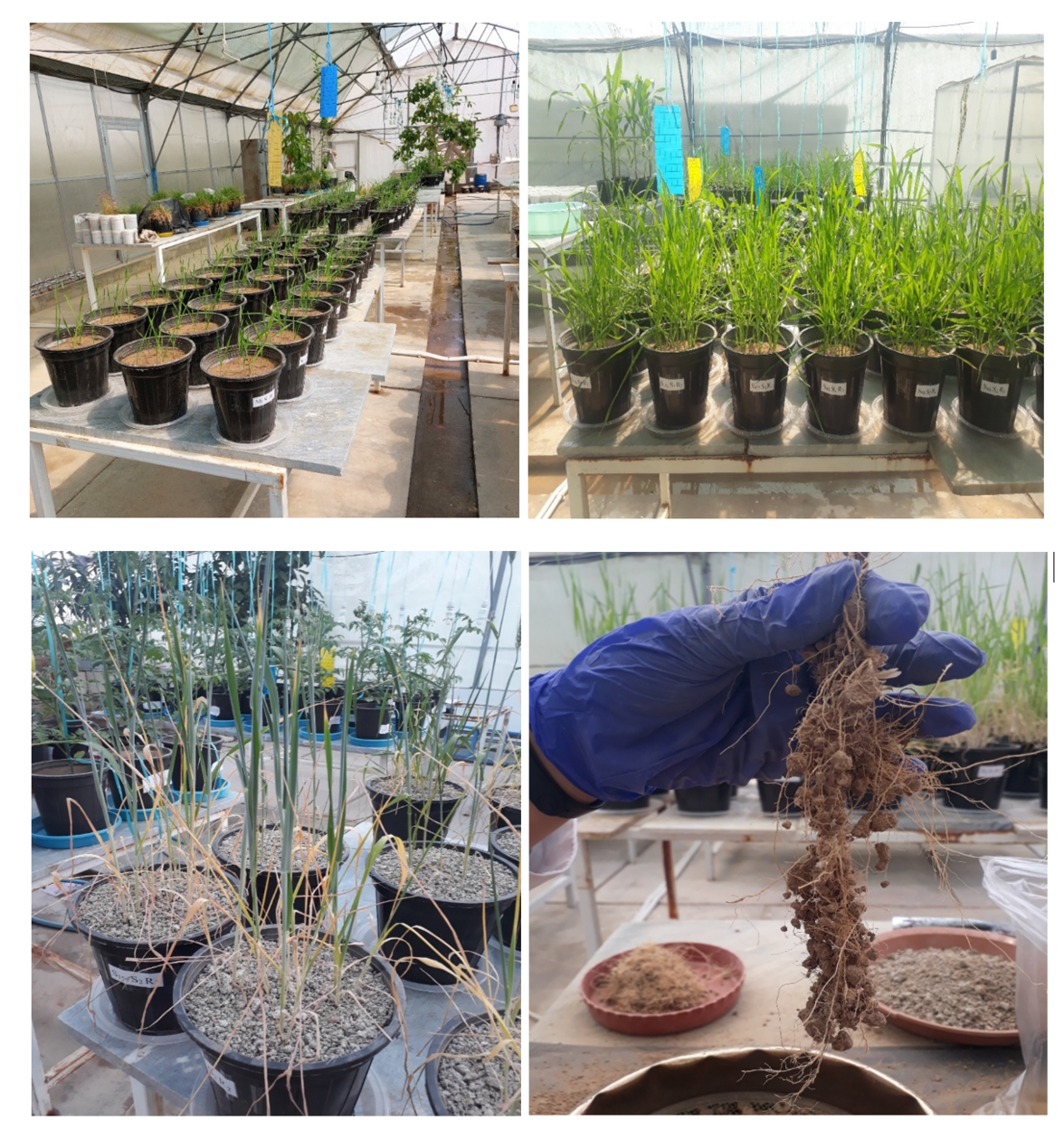WheatRhizo
Root zone properties and root water uptake pattern in synthetic and common wheats as compared with two relative species
Wheat (Triticum aestivum L.), a cornerstone of global agriculture, faces significant challenges from environmental stresses such as drought and high temperatures, impacting its growth, yield, and ultimately food security. Addressing these challenges, our project explores the potential of Emmer (Triticum dicoccum) and synthetic hexaploid wheats, which are resilient to various climatic adversities and represent a vital genetic reservoir for enhancing wheat cultivars. Unlike common wheat, other species such as durum, emmer, and synthetic wheats have not been thoroughly compared for their growth, yield, and physiological responses under different soil conditions. Our study aims to fill this gap by investigating the interactive effects of four wheat species across three soil types on soil quality and plant physiological traits in a controlled environment. This research will enhance our understanding of species-specific adaptations and soil-plant interactions, thereby informing breeding programs aimed at developing robust wheat varieties capable of sustaining productivity under diverse environmental conditions.
Project Leader:
Mohammad Reza Mosaddeghi (mosaddeghi(at)iut.ac.ir)
Mohammad Mahdi Majidi (majidi(at)iut.ac.ir)
Mohsen Zare (mohsen.zare(at)tum.de)
Team: Mehdi Nasiri (PhD student, m_nasiry65(at)yahoo.com)
